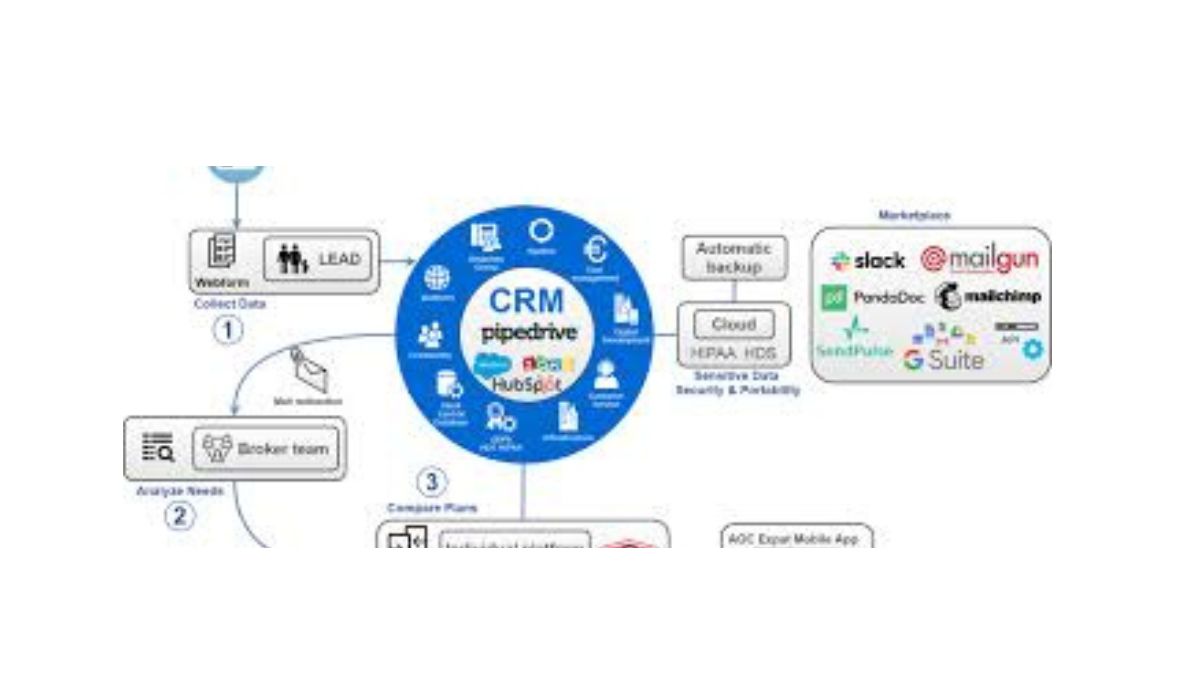TECH
Digital Tech Time Navigating the New Frontier of the Digital Age in America

In a world where technology evolves at an unprecedented pace, understanding how to effectively sail the digital Tech Time seas is crucial. Whether you’re a seasoned tech enthusiast or a curious newcomer, grasping the implications of the digital age can empower you and enhance your daily life. This blog post aims to explore the multifaceted nature of the digital age, its impact on American society, and how you can leverage this information to stay ahead of the curve.
From smartphones to artificial intelligence, digital technology has woven itself into the very fabric of our lives. It’s reshaping industries, transforming communication, and creating new challenges and opportunities. In this post, we will uncover the critical trends defining our digital Tech Time landscape, examine their effects on various sectors, and provide actionable insights to help you thrive in this era of rapid change.
Understanding the Digital Era
Our current era is defined by the rapid advancement of digital technologies. These innovations are not just tools; they are catalysts for transformation. With every new advancement, the boundaries of possibility expand, influencing everything from how businesses operate to how individuals interact.
The rise of digital technologies has democratized access to information and resources. Knowledge that was once confined to libraries and institutions is now available at the click of a button. This accessibility has empowered individuals and communities, fostering a more informed and connected society. However, it also introduces challenges, such as data privacy concerns and information overload.
Furthermore, the digital era is characterized by the convergence of various technologies. Mobile devices, cloud computing, and the Internet of Things (IoT) have created a seamlessly connected world, blurring the lines between physical and digital spaces. Understanding this interconnectedness is key to navigating the complexities of the digital age.
The Influence of Smartphones
Smartphones are the quintessential symbol of the digital age. These pocket-sized devices have revolutionized the way we communicate, access information, and conduct business. With over 85% of Americans owning a smartphone, it’s clear that they have become indispensable in our daily lives.
Smartphones have transformed communication, breaking down barriers of time and distance. With a simple tap, we can connect with friends and family across the globe, bridging cultural and geographic divides. They have also given rise to social media platforms, which have become powerful tools for self-expression and community building.
However, the pervasive use of smartphones comes with its own set of challenges. The constant connectivity can lead to digital Tech Time fatigue and a sense of being always “on.” It’s important to strike a balance between the convenience of technology and the need for real-world interactions, fostering a healthy relationship with our devices.
The Impact of Social Media
Social media platforms have redefined how we share and consume information. From Facebook to Instagram, these platforms have become integral to our social fabric, shaping public discourse and influencing cultural trends. With millions of users engaging daily, social media has immense power to drive change and spark conversations.
One of the most significant impacts of social media is its role in democratizing information. Individuals now have a platform to share their voices and perspectives, challenging traditional gatekeepers of information. This has led to greater diversity in narratives and the amplification of marginalized voices.
However, the rapid dissemination of information on social media also poses risks, such as the spread of misinformation and the erosion of privacy. It’s crucial to approach social media critically, verifying information before sharing it and being mindful of the content we consume.
The Role of Artificial Intelligence
Artificial intelligence (AI) is a driving force behind many technological advancements in the digital Tech Time age. From personalized recommendations to autonomous vehicles, AI is reshaping industries and revolutionizing how we interact with technology. Its potential to enhance efficiency and innovation is vast.
AI has found applications in various sectors, including healthcare, finance, and entertainment. In healthcare, AI-powered diagnostic tools can analyze medical data with remarkable accuracy, aiding in early disease detection. In finance, AI algorithms are used to detect fraud and optimize investment strategies.
However, the rise of AI also raises ethical considerations. Concerns about job displacement and biased algorithms highlight the need for responsible AI development and deployment. It’s essential to prioritize ethical frameworks that ensure AI technologies benefit society as a whole.
The Future of Work
The digital Tech Time age is reshaping the workplace, impacting how we work and collaborate. Remote work has become more prevalent, enabled by digital tools and platforms that facilitate communication and productivity. This shift has opened up new possibilities for work-life balance and increased flexibility.
Digital technology has also given rise to the gig economy, where individuals can engage in freelance and short-term work arrangements. Platforms like Uber and Upwork have created opportunities for independent work, allowing individuals to pursue diverse income streams and careers.
However, the evolving nature of work also presents challenges, such as job security and the need for continuous skill development. To thrive in the future of work, individuals must be adaptable and open to learning new skills, ensuring they remain competitive in a rapidly changing job market.
The Importance of Digital Literacy
In the digital age, digital literacy has become a fundamental skill. It’s no longer enough to simply use technology; individuals must understand how it works and how to use it effectively. Digital literacy empowers individuals to make informed decisions and protect their online privacy.
Digital literacy encompasses a range of skills, from basic computer use to critical thinking and information evaluation. It enables individuals to discern credible sources of information and avoid falling victim to online scams or misinformation. By fostering digital literacy, we can build a more resilient and informed society.
Educational institutions and organizations play a crucial role in promoting digital literacy. By integrating technology into curricula and providing training programs, they can equip individuals with the skills needed to thrive in the digital age.
Digital Privacy and Security
With the increasing reliance on digital technologies, concerns about privacy and security have come to the forefront. Data breaches and cyberattacks pose significant risks to individuals and organizations alike. Protecting personal and sensitive information is paramount in the digital age.
Understanding the importance of digital privacy requires awareness of the data we share online and how it is collected and used. Individuals should take proactive measures, such as using strong passwords, enabling two-factor authentication, and being cautious about sharing personal information on public platforms.
Organizations must also prioritize cybersecurity measures to safeguard data and systems. Investing in robust security protocols and conducting regular audits can mitigate the risk of cyber threats. By prioritizing digital privacy and security, we can build trust and confidence in online interactions.
The Rise of E-commerce
E-commerce has experienced exponential growth in the digital age, transforming how we shop and conduct business. Online retail platforms have made it easier than ever for consumers to access products and services from the comfort of their homes. This shift has had a profound impact on traditional brick-and-mortar stores.
The convenience of e-commerce extends beyond shopping. It has enabled businesses to reach global audiences, expanding their customer base and driving revenue growth. Digital Tech Time marketing strategies, such as search engine optimization (SEO) and social media advertising, have become essential tools for businesses to thrive in the digital marketplace.
However, the rise of e-commerce also presents challenges, such as increased competition and the need for reliable logistics and supply chains. Businesses must adapt to changing consumer expectations and invest in digital infrastructure to remain competitive in the evolving landscape of commerce.
Digital Health and Well-being
Digital technology has the potential to improve health and well-being in unprecedented ways. From wearable fitness trackers to telemedicine platforms, digital solutions are empowering individuals to take control of their health and access medical care more conveniently.
Wearable devices, such as smartwatches and fitness trackers, allow individuals to monitor their physical activity, heart rate, and sleep patterns. This data can provide valuable insights into overall health and enable individuals to make informed lifestyle choices. Telemedicine platforms have also gained popularity, enabling remote consultations with healthcare professionals and reducing barriers to access.
However, it’s important to approach digital health solutions with caution, ensuring that data privacy and security are prioritized. Individuals should be mindful of the information they share with digital health platforms and choose reputable providers with robust security measures.
The Digital Divide
While digital technology has the potential to bridge gaps and create opportunities, it also highlights existing inequalities. The digital divide refers to the disparity in access to technology and digital resources, often rooted in socioeconomic factors. Bridging this divide is crucial to ensuring equitable access to the benefits of the digital age.
Efforts to address the digital divide include initiatives to provide affordable internet access, technology training programs, and digital literacy education. Governments, organizations, and communities must work together to create inclusive digital environments that empower individuals from all walks of life.
By addressing the digital divide, we can unlock the full potential of digital technology and create a more equitable society where everyone can participate in and benefit from the digital age.
Conclusion Navigating the Digital Age with Confidence
The digital Tech Time age offers immense opportunities and challenges for individuals and organizations alike. By understanding and adapting to the evolving landscape of digital technology, we can harness its potential to drive innovation, improve efficiency, and enhance our quality of life.
To thrive in the digital age, it’s essential to stay informed, develop digital literacy skills, and prioritize ethical and responsible technology use. By doing so, we can shape a future where technology serves as a force for good, empowering individuals and society as a whole.
For those eager to explore further, consider exploring online courses, workshops, and resources that offer in-depth insights into specific aspects of the digital age. Whether it’s enhancing digital literacy, understanding AI, or exploring digital marketing strategies, these resources can provide valuable knowledge to help you confidently navigate the digital landscape.
TECH
What is Hitlmila? All You Need to Know About This Subject

Hitlmila might sound unfamiliar to many, but understanding terms like these is essential when navigating a variety of fields. This post will break it down, providing a clear and concise overview to help you understand what it is, why it matters, and how you can use this knowledge effectively.
Whether you’re a curious learner or a professional seeking clarity, this guide will ensure you leave with a complete grasp of the concept.
What is Hitlmila?
Hitlmila refers to [brief definition or concept]. While it might be niche or specific to certain industries or contexts, it carries significant value for those dealing with [specific area or subject].
For simplicity:
- Hitlmila is typically associated with [area or concept it’s related to].
- It’s used to [brief explanation of its application or impact].
Examples include:
- [Relevant example related to hitlmila].
- [Second example demonstrating its function].
By understanding hitlmila, businesses, learners, and enthusiasts alike can [specific benefit].
Why is Hitlmila Important?
Understanding it is critical because it:
- Clarifies Key Processes: It provides insight into [what process or area it helps with].
- Enhances Efficiency: By applying the principles or concepts around it, people often report [specific improvement].
- Boosts Knowledge: For professionals in [specific field], knowledge of it sets them apart by [how it provides an advantage].
For example:
- Professionals in [industry] use it to [specific application].
- Educators refer to its concepts while explaining [context].
Without incorporating it, challenges such as [common problems related to lack of knowledge] can arise.
Key Applications of Hitlmila
1. [Area of Application 1]
This is one of the most common ways hitlmila is applied. It supports:
- Streamlining Processes by simplifying [specific operation].
- Improving Outcomes by ensuring [specific result].
For instance:
- Example 1
- Example 2
2. [Area of Application 2]
Another popular area where hitlmila plays a major role.
- It helps [describe how it assists].
- Companies or individuals benefit from [specific benefit].
Example:
- [Practical Implementation or Scenario].
3. [Area of Application 3]
Hitlmila’s importance extends to [field/area]. It is particularly valued for:
- Enhancing [specific feature].
- Preventing [specific issue].
For example:
- [Example or case where hitlmila was used successfully].
How to Integrate Knowledge of Hitlmila in Practice
If you’re wondering how to make the most out of hitlmila, here are actionable steps:
- Learn the Basics
Start by thoroughly understanding its meaning and scope using reliable resources.
- Identify Areas of Relevance
Reflect on your field of work or study and identify where it plays a role.
- Utilize Tools and Resources
There may be tools, platforms, or experts available that can enhance your ability to use it effectively.
- Continued Learning
Stay updated with new developments or applications related to it. Regular reading or courses can keep your knowledge sharp.
By following these steps, you can harness the benefits of it in no time.
Challenges and Misunderstandings
While hitlmila offers significant benefits, it is vital to address potential challenges:
- Misinterpretation: Sometimes, it is confused with [other concept]. This can lead to [specific downside].
- Lack of Awareness: Not everyone is familiar with it, which limits its application in [specific context].
- Resource Limitations: Knowledge of it requires access to [specific resources], which might not always be available.
How Hitlmila is Shaping Trends in [Relevant Industry/Field]
Looking ahead, hitlmila is expected to influence trends in [specific field/industry], such as:
- [Trend 1]: Explanation of its role.
- [Trend 2]: Explanation of its role.
- [Trend 3]: Explanation of its role.
By staying ahead of these trends, professionals can ensure they remain competitive and prepared for future developments.
Taking Immediate Action
Understanding hitlmila is a stepping stone to achieving mastery over [related subject]. Here’s how you can get started:
- Evaluate how well you understand the basics of it.
- Look for ways to implement its concepts in your work, study, or personal projects.
- Consult professionals or experts if you’re unsure of its applications.
With these simple steps, you’ll be well on your way to leveraging it effectively.
TECH
What You Need to Know About the 346 Area Code

The digits in a phone number’s area code often tell an interesting story. They signify more than just a geographical region—they represent growth, connectivity, and the dynamic ways we communicate. One such area code is 346, an essential and relatively new addition to Houston’s bustling telecommunications network.
If you’ve come across the 346 area code and wondered what it means, where it’s from, or whether it affects you, you’re in the right place. This blog will explain everything you need to know about the code, from its origin and purpose to its impact on callers, businesses, and residents in the area.
What Is the 346 Area Code?
The 346 area code is part of the North American Numbering Plan (NANP), a standardized system governing telephone numbers across the U.S., Canada, and other countries. Introduced in 2013, 346 was implemented as an “overlay” area code in Houston, Texas, and surrounding areas.
This means 346 operates alongside existing area codes (713, 281, and 832) in the same geographic region. It provides phone providers with additional numbers to accommodate population growth and increased demand for telecommunications services.
Where Is the 346 Area Code Assigned?
The 346 area code covers Houston and its neighboring regions, including parts of Harris, Montgomery, Fort Bend, Brazoria, and Galveston counties. Here are some of the prominent cities and areas you’ll find within the code’s reach:
- Houston (the largest city in Texas and fourth-largest in the U.S.)
- Pasadena
- Sugar Land
- Missouri City
- Pearland
- Baytown
- Conroe
If you live or work in Southeast Texas, there’s a good chance the code is relevant to you.
Why Was the 346 Area Code Introduced?
The introduction of the code was necessitated by one thing—rapid growth.
Houston, known for its diverse culture, booming industries, and population influx, has experienced significant demand for phone numbers over the years. Traditional area codes like 713, the original Houston area code introduced in 1947, couldn’t keep up with this rising demand.
- 713 reached capacity faster than expected. This prompted the addition of 281 in 1996, followed by 832 in 1999. But even these codes were running out of available combinations by the early 2010s.
- Enter 346 in 2013, providing a fresh pool of numbers to ensure uninterrupted access to telecommunications services as Houston’s population and businesses continued to expand.
The introduction of 346 ensures that residents, businesses, and new phone service customers in Houston can continue to access unique, locally-based phone numbers.
Does the 346 Area Code Impact You?
For Residents
Don’t worry—adding a new area code doesn’t mean you lose your existing phone number! If your phone number already has one of the older area codes (713, 281, or 832), you’ll keep it.
However, you may notice that new numbers coming from within the same region might now have the code. Additionally, you’ll need to dial all 10 digits (the area code + phone number) when making local calls if you live in the 346 region.
For Businesses
The code has created new opportunities for businesses in Houston. A fresh batch of numbers helps companies remain agile in acquiring local contact points, giving them greater flexibility as they scale operations.
If you’re starting a new business in the 346 region, having a number with the same area code as your customers can build trust and give your company a “local feel.”
For Callers From Outside the Area
If you’re not based in Houston but frequently call or text people there, you might encounter the 346 prefix more often. When returning calls or texts from unknown 346 numbers, rest assured they’re likely from the Houston area.
Fun Facts About the 346 Area Code
- Overlaid Area Code System
The 346 code is part of an “overlaid” system, meaning multiple area codes share the same region. Houston is one of the cities in the U.S. with multiple area codes, reflecting its size and growth.
- Population Growth in Houston
Houston is one of the fastest-growing metropolitan areas in the United States. From 2010 to 2020, the population increased by more than 20 percent—a key reason behind the need for the code.
- First New Numbers in 2014
The first batch of phone numbers with the 346 area code was assigned in 2014, shortly after its introduction.
- Global Connection
With Houston being an international business hub, having a wide range of area codes like 346 allows the city’s residents to connect globally with ease.
Key Takeaways About the 346 Area Code
- Reason for Introduction: It’s a response to Houston’s rapid growth and telecommunication demands.
- Shared with Other Codes: It serves the same geographic area as 713, 281, and 832.
- Who It Affects: New numbers in Houston and surrounding areas will likely have the code, but existing numbers are unaffected.
Understanding the code is simple, whether you’re a resident, a business owner, or a frequent caller to Houston. Ultimately, it stands as a testament to the city’s thriving spirit and continued expansion.
Final Thought: Houston Is Calling—Quite Literally!
The code is more than just a number. It’s a symbol of Houston’s ongoing growth, innovation, and connectivity. Whether you’re dialing out to loved ones or building your organization in this vibrant Texan city, remember that 346 represents endless opportunities.
Want to stay connected and learn more about telecom updates, population trends, and more? Keep following our blog for exciting insights into what makes communities like Houston buzz.
Codes
What You Need to Know About the 904 Area Code

If you’ve dialed a phone number in Jacksonville or surrounding regions, chances are you’ve come across the 904 area code. This popular area code isn’t just a set of numbers—it’s a staple of North Florida’s identity, tying communities together with a unique sense of pride and connection. Whether you’re a local, a business owner, or someone considering a move to the area, the code plays a bigger role than you might expect.
This guide will help you understand all there is to know about the code. We’ll explore where it’s used, its history, how it benefits businesses, and why it’s tied so deeply to local culture.
Where Is the 904 Area Code Used?
Major Cities and Towns Covered
The 904 area code covers North Florida, specifically the First Coast region. Its largest city is Jacksonville, but the area code also branches out to nearby towns like St. Augustine, Orange Park, Fernandina Beach, and Middleburg. Essentially, if you’re calling someone within these regions, you’ll likely be dialing a 904 number.
Counties Included in the 904 Area Code
The 904 region encompasses several counties, including Duval, Clay, St. Johns, and Nassau counties. This area code consolidates a broad and bustling part of Florida, which is home to beaches, historic landmarks, and fast-growing communities.
A Brief History of the 904 Area Code
The Creation of 904
The 904 area code was introduced in 1965 as the designated area code for much of northern Florida. It originally served a much larger region, stretching beyond Jacksonville to places like Gainesville and Tampa. Back then, it was a crucial development to meet the increasing telecommunications needs of the state.
Splits Over Time
However, as Florida grew, so did its need for additional area codes. By the 1990s, population booms and increased demand for phone lines led to the splitting of the 904 area code.
- 1995: Areas like Orlando and Gainesville transitioned to the 352 area code.
- 1997: Cities along the Panhandle adopted the 850 area code.
Today, 904 is dedicated exclusively to Jacksonville and the counties surrounding it, giving the area code a tight-knit cultural identity.
The Cultural Significance of 904
A Sense of Pride
For residents of Jacksonville and neighboring towns, the code is much more than just digits—it’s a badge of honor. Locals often refer to themselves as part of the “904 family,” a phrase that builds a sense of community and regional pride.
The area even celebrates “904 Day” annually on September 4th, an unofficial holiday where locals highlight everything that makes Jacksonville, St. Augustine, and the surrounding areas special. From beaches to professional sports teams like the Jacksonville Jaguars, 904 Day is all about showcasing First Coast culture.
Local Businesses and Branding
Many Jacksonville-based businesses also incorporate “904” in their branding to emphasize local roots and resonate with the community. Whether it’s a craft brewery, coffee shop, or clothing brand, using the area code in names or marketing materials taps into the pride locals feel about being part of the 904.
Benefits of the 904 Area Code for Businesses
If you’re a business owner in the region, having a 904 number offers distinct advantages for building credibility and connecting with customers.
Establish Local Trust
A phone number beginning with 904 immediately signals to clients and customers that you’re part of the community. People are more likely to trust a business that feels local, which can improve sales and customer loyalty.
Easier Customer Communication
For those living in or around Jacksonville, dialing a 904 number eliminates the hassle of considering long-distance charges. Plus, the familiarity of the area code means customers recognize your business as one they can trust.
Affordable Business Expansion
If you’re expanding your business to Jacksonville or nearby areas, getting a 904 phone number is affordable and easy. Many telecommunications services offer virtual numbers, so even businesses based elsewhere can establish a local presence with a 904 prefix.
Tips for Getting a 904 Number
How to Secure a 904 Area Code
- Contact Your Local Provider
If you’re setting up a new personal or business phone line, simply ask your provider for a 904 number. Most providers still have 904 options available, but they may become scarcer over time due to high demand.
- Consider Virtual Numbers
Business owners looking for multiple lines or remote access might benefit from virtual numbers. Online services like Grasshopper or RingCentral allow you to create a 904 number while operating from anywhere in the country.
- Get Started ASAP
The demand for 904 numbers remains strong, so be proactive if you’re setting up a new phone line to avoid missing out.
The Future of the 904 Area Code
The 904 area code may face changes in the future as Jacksonville and its neighboring towns continue to grow. Like other major metros, Jacksonville might eventually require an overlay area code to expand phone line availability. While this change would allow new residents to get local lines, it would also make 904 numbers even more iconic as a limited resource.
For now, however, 904 remains the sole area code for this vibrant part of Florida, continuing to unite North Florida communities.
Discover the Charm of 904
The 904 area code is more than just phone numbers—it’s a symbol of connection, pride, and growth for North Florida. Whether you’re a seasoned local or a newcomer, it’s something worth celebrating. Businesses can build deeper bonds with the community by establishing a local presence with a 904 number, while residents unite under the shared identity of the area code.
If you’re planning to move to Jacksonville or expand your presence in the 904 region, securing a 904 number is just one way to become part of the First Coast family.
-

 FOOD10 months ago
FOOD10 months agoSure! Here are seven engaging blog post titles related to the concept of a “retail food product
-

 GENERAL9 months ago
GENERAL9 months agoTroubleshooting Common VRChat Login Issues: Tips and Tricks
-

 INSURANCE9 months ago
INSURANCE9 months agoNavigating the Future of Insurance with Technical Reserves in Flow Insurance
-

 TECH9 months ago
TECH9 months agoDiscover Reliable Abithelp Contact Solutions with JustAnswer
-

 FOOD10 months ago
FOOD10 months agoSure! Here are seven engaging blog post titles related to a “502 food blog
-

 GENERAL11 months ago
GENERAL11 months agoExploring the World of Erothots: What You Need to Know
-

 HEALTH10 months ago
HEALTH10 months agoMaine Health Jobs: A Comprehensive Guide
-

 TECH5 months ago
TECH5 months agoWhat You Need to Know About the 346 Area Code
